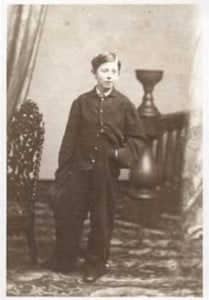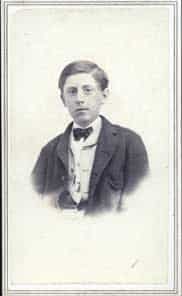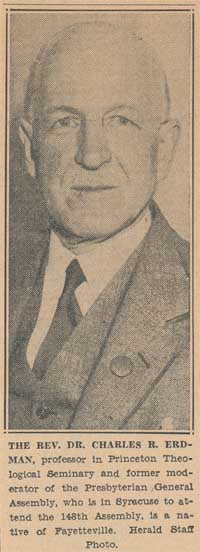He Preached His Own Funeral Sermon
by Rev. David T. Myers
![Rev. Samuel Davies [3 November 1723 - 4 February 1761]](https://thisday.pcahistory.org/wp-content/uploads/2012/04/DaviesSamuel-231x300.jpg) Subscribers to This Day in Presbyterian History, are familiar with our character today, namely, the Rev. Samuel Davies. If we would sum up his life and ministry, the following titles would adequately describe him: Presbyterian pastor, who in the early days of this country, before it was a country, rode a circuit of five hundred miles through forests and fields ministering to the hearts of saved and unsaved alike; church planter, the first non-Anglican minister in Virginia; hymn writer, author of “Great God of Wonders!” on page 82 of the red Trinity Hymnal, evangelist, defender of persons and places, being described at the best recruiter of the “military” in the French and Indian War; and yes, president of the College of New Jersey (later Princeton University and Seminary) in May 1759.
Subscribers to This Day in Presbyterian History, are familiar with our character today, namely, the Rev. Samuel Davies. If we would sum up his life and ministry, the following titles would adequately describe him: Presbyterian pastor, who in the early days of this country, before it was a country, rode a circuit of five hundred miles through forests and fields ministering to the hearts of saved and unsaved alike; church planter, the first non-Anglican minister in Virginia; hymn writer, author of “Great God of Wonders!” on page 82 of the red Trinity Hymnal, evangelist, defender of persons and places, being described at the best recruiter of the “military” in the French and Indian War; and yes, president of the College of New Jersey (later Princeton University and Seminary) in May 1759.
This last post of ministry, Samuel Davies, was most reluctant to take. It would mean giving up his scattered but effective ministry to the people of Virginia, especially at Polegreen Presbyterian Church in Virginia. Biblical Presbyterianism was just beginning to get a toe-hold in that area. Frankly, Virginia Presbyterians were not of the opinion that he should give up the fields which were white unto harvest. But he was convinced by the board of trustees of this young Presbyterian college to take the position. They saw that God has bestowed, as it was said then by one trustee, “prodigious, uncommon gifts” upon Samuel Davies. And so He had. Samuel Davies took reluctantly the position, though not a well man. Two years later, on February 4, 1761, Samuel Davies would entered heaven’s gates to receive his rewards.
But where does our title enter into the picture, you ask? Well, Samuel Davies did preach his own funeral sermon. It was on January 1, 1761 that Samuel Davies preached a sermon in Princeton, New Jersey on New Year’s day from Jeremiah 28:16, entitled “This Very Year You Are Going to Die!” And thirty-five days later, he did die on this day, February 4, 1761.
A few excerpts from that sermon, which is on-line, are important to recount, for they speak of the fervor of the gospel sermon which for all practical purposes was for himself, though unknown by him at the time. He preached on that Lord’s Day in Princeton, New Jersey,
“While we are entering into the threshold of a new year, it may be proper for us to stand, and pause, and take a serious view of the occurrences that may happen to us this year – that we may be prepared to meet them. Future contingencies are indeed unknown to us; and this ignorance is as agreeable to our present state, and as conducive to our improvement and happiness – as our knowledge of the things which it concerns us to know. But though we cannot predict to ourselves the particular events that may befall us – yet the events of life in general, in a vague indeterminate view, are not so contingent and unknowable as to leave no room for rationale suppositions, and probably expectations”
In the sixth paragraph of his sermon, Samuel Davies goes on to say, “Yes, it is highly probably, that if some prophet, like Jeremiah, should open to us the book of the divine decrees, one or another of us would there see our sentence, and the time of its execution fixed! ‘Thus says the Lord – This very year you are going to die!’”
In thirty-five days, after only two years as president of what later became Princeton University and Seminary, at the age of 37, Samuel Davies died! In a way, he preached his very own funeral sermon on that first day in 1761.
Words to Live By:
None of our readers, nor your two authors, like to think of this solemn and unchangeable event, but it is, as the Lord states, appointed unto us to die at some day at our Lord’s choosing. Far better for us to prepare for this eventuality, by first making sure that we have received by faith alone the Lord Jesus and His accomplished work on the cross for us. And then, in appreciation of that great salvation, seek while we are on this earth to buy up every opportunity for the Lord’s service, whether in the home, church, and/or society, by being the salt of the earth and shining the gospel light upon the spiritually dark world.(Matthew 5:13 – 16)



